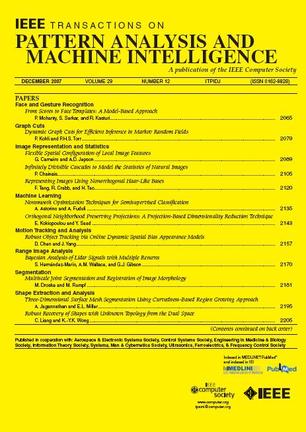基于定位的面向损失的不平衡学习的统一视角。
IF 18.6
1区 计算机科学
Q1 COMPUTER SCIENCE, ARTIFICIAL INTELLIGENCE
IEEE Transactions on Pattern Analysis and Machine Intelligence
Pub Date : 2025-09-12
DOI:10.1109/tpami.2025.3609440
引用次数: 0
摘要
由于现实世界数据集的内在不平衡,naïve经验风险最小化(ERM)倾向于将学习过程偏向多数类,阻碍了对少数类的泛化。为了重新平衡学习过程,一个简单而有效的方法是通过类相关项修改损失函数,例如重新加权和对数调整。然而,现有的对这些面向损失的方法的分析仍然是粗粒度和碎片化的,无法解释一些实证结果。在回顾之前的工作后,我们发现通过他们的分析使用的属性通常是全局的,即在整个数据集上定义。因此,这些属性不能有效地捕捉类相关术语如何影响学习过程。为了弥合这一差距,我们转而探索这些属性的本地化版本,即在每个类中定义的属性。具体来说,我们使用局部校准来提供更广泛损失范围内的一致性验证,并使用局部Lipschitz连续性来提供细粒度泛化界。这样,我们对亏损导向方法的改进和调整就有了统一的看法。最后,基于这些见解,开发了一个原则性的学习算法。传统的ResNets和基础模型的实证结果验证了我们的理论分析,并证明了所提出方法的有效性。本文章由计算机程序翻译,如有差异,请以英文原文为准。
A Unified Perspective for Loss-Oriented Imbalanced Learning via Localization.
Due to the inherent imbalance in real-world datasets, naïve Empirical Risk Minimization (ERM) tends to bias the learning process towards the majority classes, hindering generalization to minority classes. To rebalance the learning process, one straightforward yet effective approach is to modify the loss function via class-dependent terms, such as re-weighting and logit-adjustment. However, existing analysis of these loss-oriented methods remains coarse-grained and fragmented, failing to explain some empirical results. After reviewing prior work, we find that the properties used through their analysis are typically global, i.e., defined over the whole dataset. Hence, these properties fail to effectively capture how class-dependent terms influence the learning process. To bridge this gap, we turn to explore the localized versions of such properties i.e., defined within each class. Specifically, we employ localized calibration to provide consistency validation across a broader range of losses and localized Lipschitz continuity to provide a fine-grained generalization bound. In this way, we reach a unified perspective for improving and adjusting loss-oriented methods. Finally, a principled learning algorithm is developed based on these insights. Empirical results on both traditional ResNets and foundation models validate our theoretical analyses and demonstrate the effectiveness of the proposed method.
求助全文
通过发布文献求助,成功后即可免费获取论文全文。
去求助
来源期刊
CiteScore
28.40
自引率
3.00%
发文量
885
审稿时长
8.5 months
期刊介绍:
The IEEE Transactions on Pattern Analysis and Machine Intelligence publishes articles on all traditional areas of computer vision and image understanding, all traditional areas of pattern analysis and recognition, and selected areas of machine intelligence, with a particular emphasis on machine learning for pattern analysis. Areas such as techniques for visual search, document and handwriting analysis, medical image analysis, video and image sequence analysis, content-based retrieval of image and video, face and gesture recognition and relevant specialized hardware and/or software architectures are also covered.

 求助内容:
求助内容: 应助结果提醒方式:
应助结果提醒方式:


